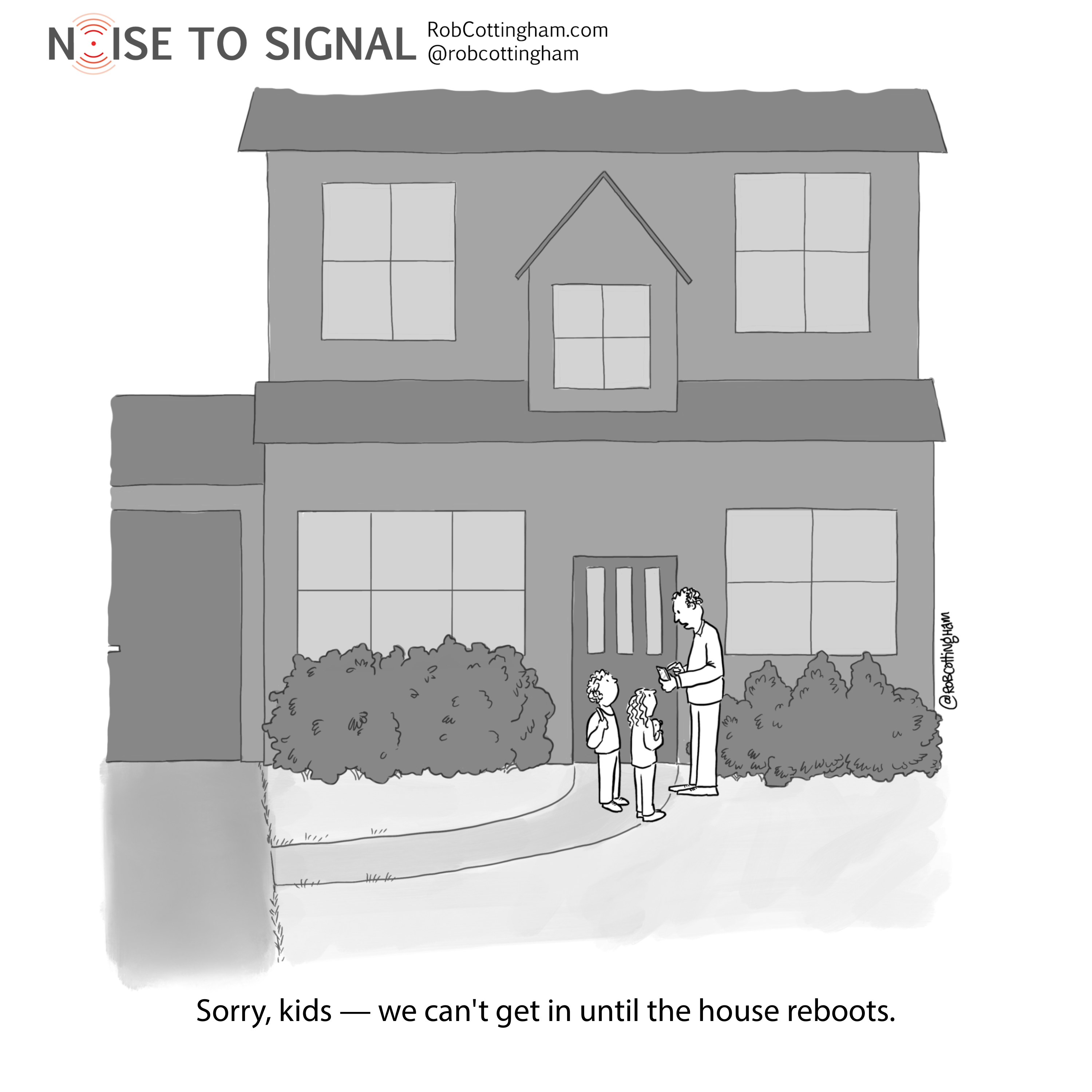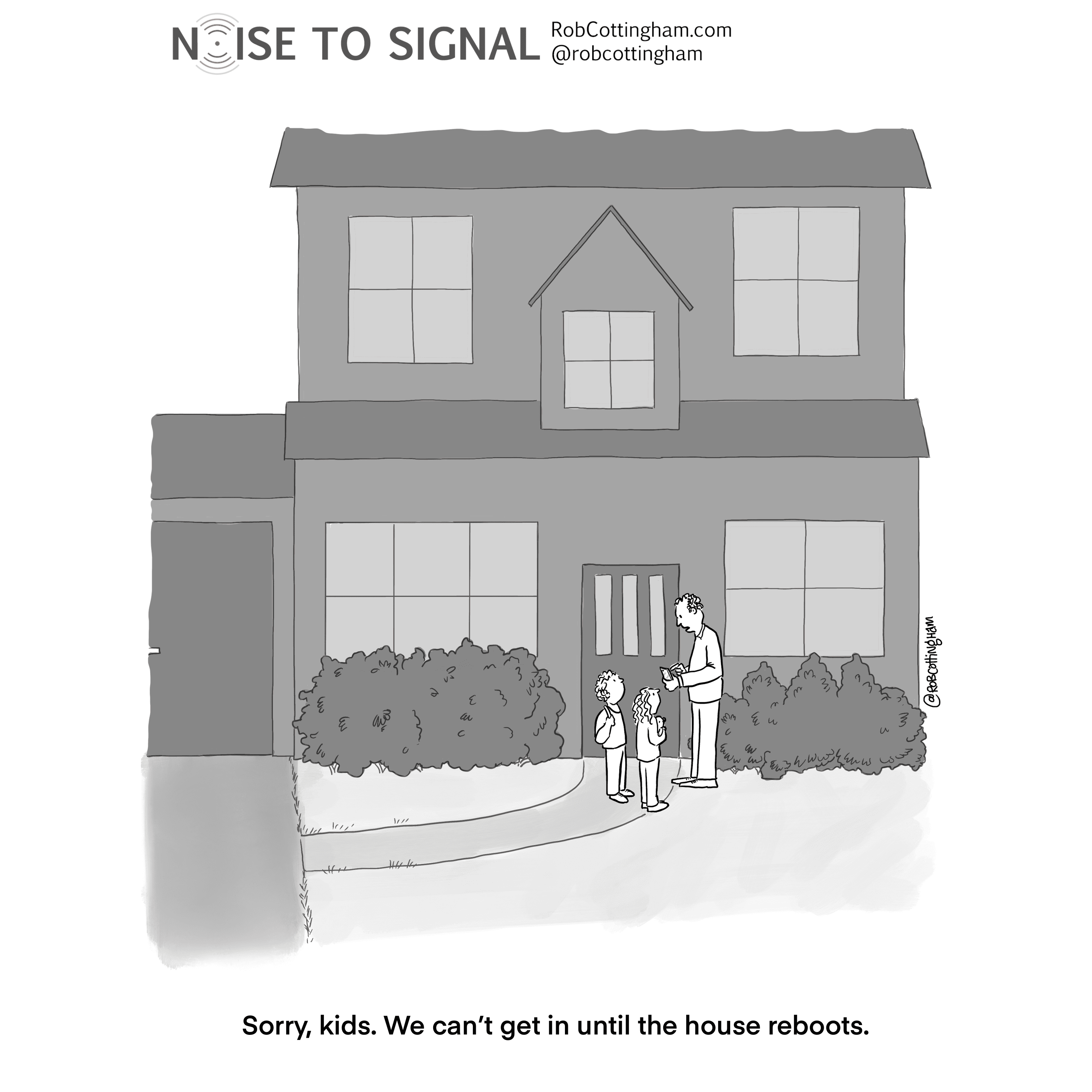I grew up in a home where none of our devices had operating systems or smart features. From home entertainment to kitchen appliances, everything was stolidly mindless.
This places me in a slowly dwindling minority of the North American population. I can still remember how disconcerting it was to realize my phone had an operating system, and wouldn’t need to just restart but reboot.
But the generation coming of age today grew up in a world where your thermostat could well have an OS; your TV almost certainly does. The thought of, say, an Internet-enabled dog treat dispenser elicits a shrug from my kids. Of course such a thing exists.
Alex and I embrace this stuff happily. (That dog treat dispenser wasn’t just a hypothetical example, and it solved a problem, okay?) Alexa — and therefore our voices — can now control our home lighting, our projector screen and the charger for my e-bike. The VCR of my teenage years has morphed into a home media server whose capacity and capabilities would have staggered my adolescent mind. And I’m not only comfortable with having an OS on my phone; I look forward to updates eagerly.
But I also know this growing reliance on CPUs and networking is a vulnerability. Where there’s an OS, there’s someone with a yen to hack it — increasingly, for profit. (“Mom, some guy in Belarus says we can’t open the garage door unless we pay him a thousand bucks in Bitcoin.”) Every new networked gizmo is a potential privacy breach, whether it’s to hackers or data brokers.
And then, of course, there’s the charming possibility that the manufacturer will take exception to my archaic belief that buying a device means I own it, and flip the remote switch that renders it inert for good.
In fact, the day probably isn’t far off when builders can do that to your entire house. Depending on the construction materials, that may lend a whole new meaning to the term “bricking.”


